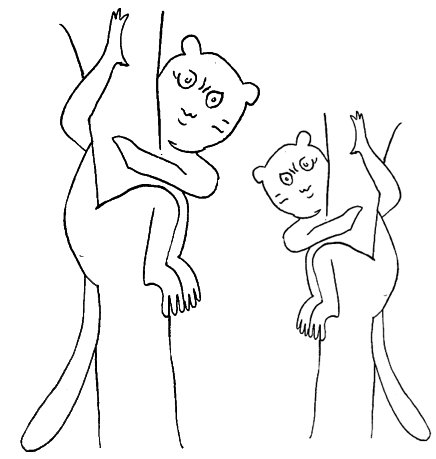
バイオコロニアリズム
Bio-colonialism

☆バ
イオコロニアリズムとは、特に企業や国家といった強大な主体が、先住民が保有する生物資源や知識を、その同意や利益なしに商業的利益のために搾取し不当に
利用する行為である。これにはバイオパイラシーのような慣行が含まれ、遺伝資源や伝統的知識が知的財産や利益のために主張されることで、先住民の権利と自
律性が損なわれる。
| Biocolonialism
is the exploitation and misappropriation of Indigenous peoples'
biological resources and knowledge by powerful actors, particularly
corporations and states, for commercial gain and without the consent or
benefit of the Indigenous communities who hold these resources and
knowledge. It encompasses practices like biopiracy, where genetic
resources and traditional knowledge are claimed for intellectual
property and profit, undermining the rights and autonomy of Indigenous
peoples. |
バイオコロニ
アリズムとは、特に企業や国家といった強大な主体が、先住民が保有する生物資源や知識を、その同意や利益なしに商業的利益のために搾取し不当に利用する行
為である。これにはバイオパイラシーのような慣行が含まれ、遺伝資源や伝統的知識が知的財産や利益のために主張されることで、先住民の権利と自律性が損な
われる。 |
| Key Aspects of Biocolonialism |
バイオコロニアリズムの主要な側面 |
| Exploitation of Resources: This involves the taking of biological resources—such as plants, fungi, and genetic materials—and traditional knowledge from Indigenous territories without proper authorization or compensation. |
資源の搾取: これは、植物、菌類、遺伝物質などの生物資源や、先住民の領域から伝統的知識を、適切な許可や補償なしに奪うことを意味する。 |
| Commercialization and Profit: The primary goal of biocolonialism is to commodify these biological resources and knowledge, turning them into marketable products for the profit of multinational corporations and other powerful entities. |
商業化と利益: バイオコロニアリズムの主目的は、これらの生物資源と知識を商品化し、多国籍企業やその他の有力組織の利益のために市場で売れる製品に変えることだ。 |
| Intellectual Property Regimes: The existing intellectual property (IP) system often fails to protect Indigenous rights, allowing corporations to acquire patents or intellectual property rights more readily than the original knowledge holders. |
知的財産制度: 現行の知的財産(IP)制度は、先住民の権利を保護できない場合が多く、企業は本来の知識保有者よりも容易に特許や知的財産権を取得できる。 |
| Violation of Indigenous Rights: Biocolonialism directly violates Indigenous peoples' rights, including their right to self-determination, cultural integrity, and control over their traditional resources. |
先住民の権利侵害: バイオコロニアリズムは、先住民の自己決定権、文化的完全性、伝統的資源に対する管理権を含む権利を直接侵害する。 |
| Neocolonialism: As a form of neocolonialism, it extends the historical power imbalances and oppressive dynamics of colonialism into the biopharmaceutical, biotechnological, and scientific spheres. |
新植民地主義: 新植民地主義の一形態として、それは植民地主義の歴史的な力の不均衡と抑圧的な力学を、バイオ医薬品、バイオテクノロジー、そして科学の領域にまで拡大する。 |
| Examples and Manifestations |
実例とその現れ |
| Biopiracy: Corporations taking and patenting natural medicines or other resources derived from Indigenous knowledge, such as drug patents or agricultural gene manipulation. |
バイオパイラシー: 企業が先住民の知識から得られた天然薬やその他の資源を盗み取り、特許を取得すること。例えば医薬品の特許や農業用遺伝子操作などが該当する。 |
| Genetic Research: Population genetics research sometimes involves the exploitation of Indigenous human bodies and genetic data, with the aim of commercial "opportunities" or academic gain. |
遺伝学研究: 集団遺伝学研究は時に、先住民の身体や遺伝情報を搾取することを伴う。その目的は商業的「機会」や学術的利益にある。 |
| Opposition to GMOs: Indigenous communities actively resist the imposition of technologies like genetically modified organisms (GMOs), as they see it as a continuation of biocolonialism that threatens their food sovereignty and cultural practices. |
遺伝子組み換え作物への反対: 先住民族コミュニティは、遺伝子組み換え生物(GMO)のような技術の押し付けに積極的に抵抗している。彼らはこれを、自らの食料主権と文化的慣行を脅かすバイオコロニアリズムの継続と見なしているからだ。 |
| Resistance and Advocacy | 抵抗と擁護 |
| Organizations like the
Indigenous Peoples Council on Biocolonialism (IPCB) work to educate and
provide technical support to Indigenous communities in protecting their
biological resources and cultural integrity. |
先住民のバイオコロニアリズムに関する評議会(IPCB)のような組織は、先住民コミュニティが自らの生物資源と文化的完全性を守るための教育と技術支援を提供している。 |
| There is a growing movement
among Indigenous peoples to assert and protect their rights in
international forums, advocating for recognition of their inherent
rights over their cultural heritage, knowledge, and biodiversity. |
先住民の間では、自らの文化的遺産、知識、生物多様性に対する固有の権利を認めさせるべく、国際的な場で権利を主張し保護しようとする動きが高まっている。 |
| Google- AI |
リ ンク
文 献
そ の他の情報
CC
Copyleft,
CC, Mitzub'ixi Quq Chi'j, 1996-2099